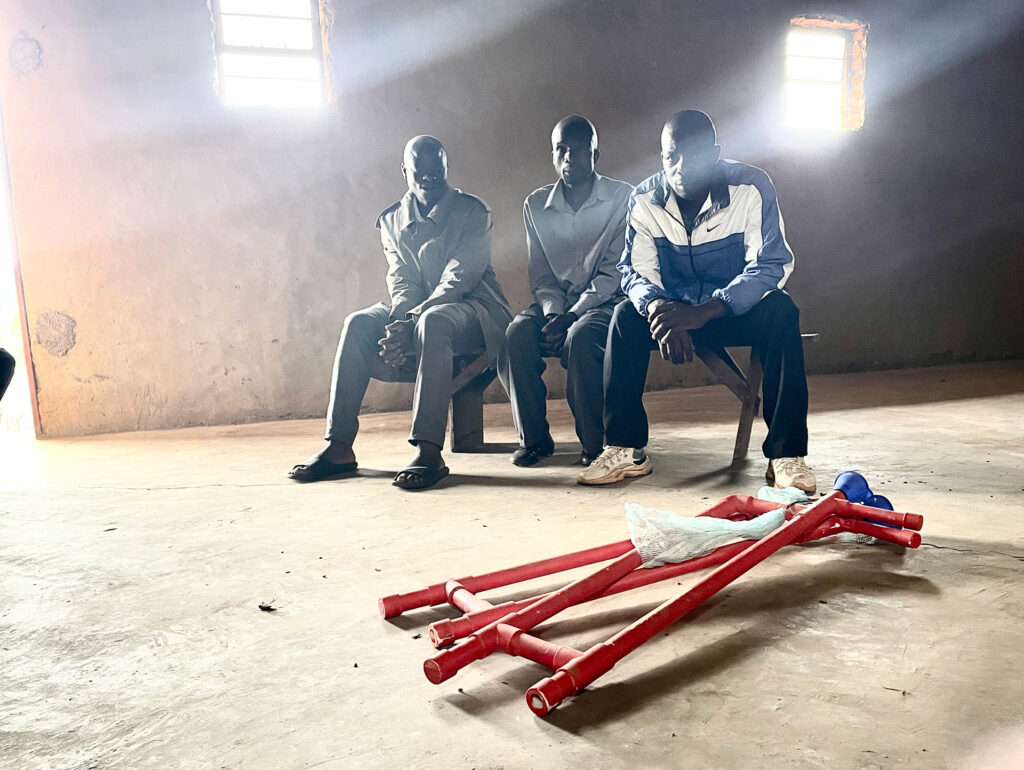Mponda Village, Malawi … Within the expansive storage facility of Joseph Project 1, a group of Malawian farmers arranged three rustic wooden benches in a U-shape at the room’s end. The Malawians and American visitors took their seats. A village resident rose and proceeded to the opposite end of the building to retrieve two of the shiny orange maize planters. Upon returning, he placed them on the floor in the center of the room. They would serve as a visual demonstration of the chairman’s forthcoming remarks.
Action for Progress had recently delivered maize planters to this secluded village for testing purposes to ascertain whether the villagers would recognize the value of these innovative planters and incorporate them into their agricultural practices. The results were now in, and the villagers shared their findings.
The chairman of the farm committee commenced the report by expressing gratitude to the visitors for introducing such a valuable device to their village. He acknowledged that initially, the villagers were somewhat apprehensive about the functionality of the devices, as they had never encountered anything similar. Subsequently, he reported the success of the planters when the villager’s acquired knowledge of their usage. Now, he asserted that the villagers would desire to utilize them due to their ability to significantly simplify and expedite their work, eliminating the necessity for women to bend down to operate them.
These outcomes are being replicated in other regions of the country where the maize planters are being introduced. They are poised to change the way farm families plant their crops. The maize planters offer a combination of ease, speed, and cost-effectiveness. Overall, the maize planter isgarnering significant popularity among these communities, where cultivation, planting, and harvesting are traditionally undertaken manually.
If you wish to make maize planters for Malawi or obtain information about how your group can participate, please write: info@malawiproject.org

